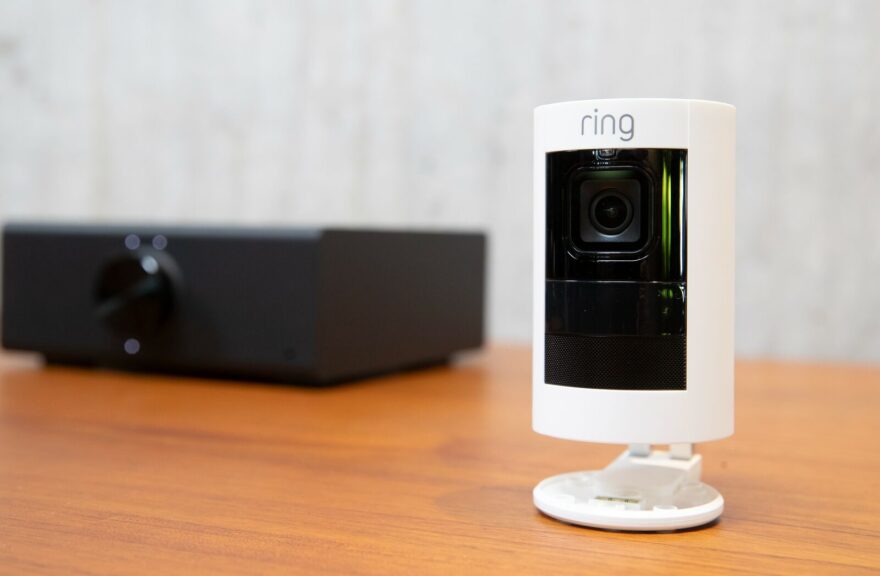The popularity of home security surveillance systems like Amazon’s Ring and Google Nest is rising. The devices are easy to set up and use. They save footage from users’ homes to the cloud. But what happens next?
The cameras aren’t just filming deliveries or watching for package thefts. They’re also recording passersby, and can sometimes even reach across the street into neighbors’ homes. A Gizmodo investigation found that a kid would be captured on at least 13 Ring cameras on his walk from a D.C. charter school to the closest soccer field.
Paired with concerns around the use of facial recognition technology, many privacy advocates and researchers are ringing the alarm. In the Guardian, Lauren Bridges called Ring “the largest corporate-owned, civilian-installed surveillance network that the US has ever seen.”
Ring video doorbells, Amazon’s signature home security product, pose a serious threat to a free and democratic society. Not only is Ring’s surveillance network spreading rapidly, it is extending the reach of law enforcement into private property and expanding the surveillance of everyday life. What’s more, once Ring users agree to release video content to law enforcement, there is no way to revoke access and few limitations on how that content can be used, stored, and with whom it can be shared.
Why are doorbell cameras so popular? What happens to the video once it’s uploaded to the cloud? And how do we balance the concerns of privacy versus security?
Copyright 2021 WAMU 88.5


